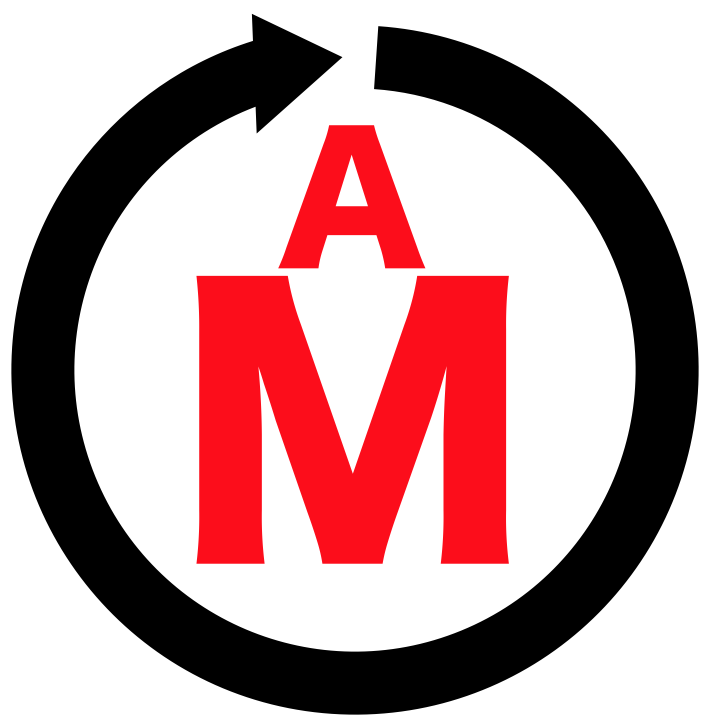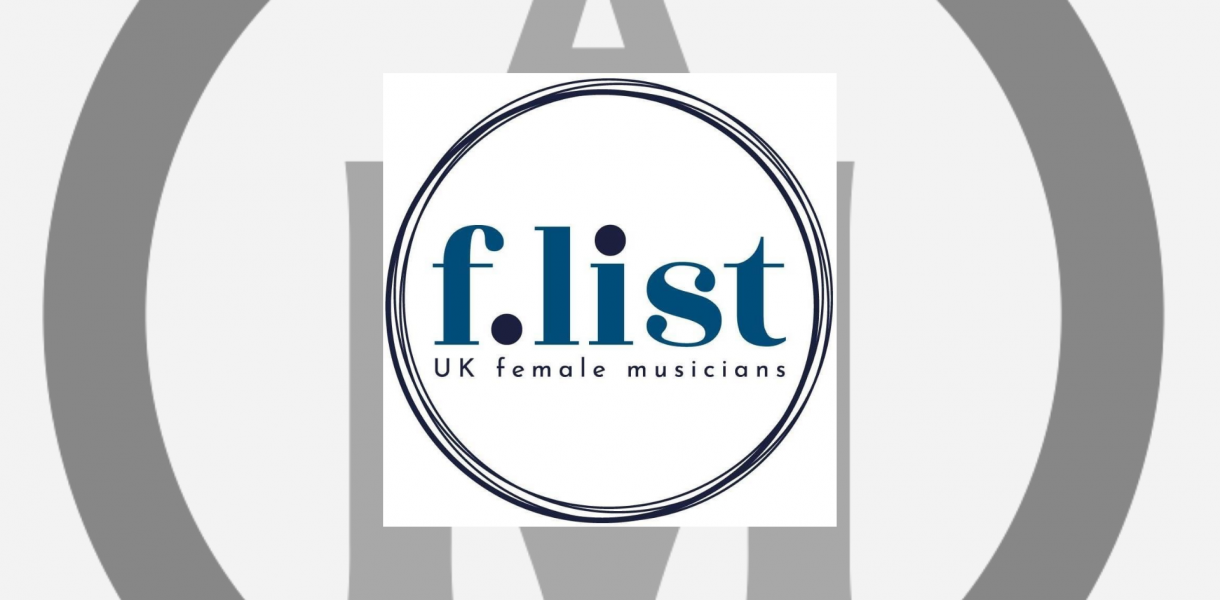Cast your mind all the way back to early 2020 and you may remember Twitter being set alight with speculation around the lack of female artists present on the Reading & Leeds Festival lineups. It was a watershed moment that prompted Vick Bain to launch her exciting initiative The F-List, a directory of female musicians in the UK that is easily searchable and enables people of all necessities to source female musical talent.
Since it’s formation, The F-List for Music has grown substantially and gained support from high-profile artists including their President Anoushka Shankar and various national media outlets. Furthermore, it has grown to become an impressive charitable force in the industry boasting exciting partnerships with Skiddle, The Association of Independent Festivals, Scottish Women Inventing Music and Independent Venue Week.
This week Hermione had the privilege of speaking with founder of The F-List for Music, Vick Bain about her inspiration behind the initiative and why it is such an important step forward for the industry.
Hi Vick, thanks so much for chatting to us! It’s so great to be talking to someone with so much industry expertise. If you could just start by telling our AM readers a bit about yourself and your background.
I’ve worked mainly in the music industry, occasionally some other creative industries, but mainly the music industry for 25 years, which makes me officially old now! I worked for a good portion of that with composers and songwriters and specifically with a membership organisation called the British Academy of Songwriters, Composers and Authors where I was CEO for 6 years. It’s now rebranded as the Ivors Academy because it owns the Ivor Novello Awards. That was loads of fun and I really got into campaigning and lobbying on behalf of writers. It was there I became particularly interested in female composers and songwriters because there were so few of them.
Two years ago, I left BASCA and became an independent diversity consultant. I’m studying for a part-time PhD looking at women’s careers in the music industry and working with lots of really interesting companies wanting to improve their diversity and inclusion. I’m doing lots of campaigning and a key part of that work was setting up The F-List last year.
Was there a particular moment at all where you realised that addressing diversity in the industry was something you wanted to get more involved in?
I think it was a slow gradual awareness, which sounds silly now looking back at it because I was working and having lots of meetings, being in boardrooms and at various events where it was probably 80 or 90 percent male. I did try to have the conversation with a few people asking them, ‘do you think the music industry has a gender problem?’ It was always denied with, ‘what do you mean? It’s been a hundred years since women got the vote!’ that sort of thing. So it was really dismissed….this was in the late noughties.
When I really saw it starkly was when I looked at the actual statistics. Ten years ago, there wasn’t much data out there but because BASCA owned the Ivor Novello Awards, I decided to analyse their data. It was over 65 years’ worth of data because it was started in the 1950’s. I crunched all of that data looking at the winners. Only 6% of those awards had gone to women and that had only gone up to 10% since 2010, the past decade. When you look at statistics like that, that is when you go, what is going on and what is causing that? I think that was a really key moment for me, I wanted to find out what was going on.
Those are such shocking statistics and I presume the inspiration behind the F-List?
That was very much the inspiration because then when I talked to my team who ran the awards and the judging process, I was told that it is up to the publishers who nominate the works of the songwriters and composers and they’re not submitting many works by women. That got me thinking, who are the publishing houses and record labels representing; who have they got on their rosters? I identified over 300 labels and publishing companies based in the UK and I copied all of the roster data off their websites, put it into a big spreadsheet and did a gender analysis of who they were representing. It was a massive piece of work that took 4 months, then I published that research at the end of 2019, it is called ‘Counting The Music Industry’. I found out that only 14% of writers signed to publishing companies were women and only 20% of artists signed to labels. But in the process of doing all of that work, I realised that I had, as a consequence, the names of thousands of women who were signed or who were in bands and all of their label and publishing information.
There was a Twitter exchange going on last January concerning the Leeds/Reading Festival line-ups and Lucy McCourt who takes off all the male acts so that you can just see the women who are performing. It’s usually two or three women at the bottom of the lineup. Then people always respond by saying ‘oh but I know a female musician’ or ‘I know a band with a woman’ so I thought I know more than one, I’ve got a list of thousands and I will publish it as a Google spreadsheet. I think at the time I had about 3,500 names and that caused quite a stir really, so this was in February 2020. I got contacted by quite a number of festivals saying this is a brilliant idea and I talked to a lot of promoters who thought it was really useful and were using it to find female musicians.
Unfortunately, everything has been on pause since then but I decided in lockdown to spend last year improving that Google spreadsheet and creating a much better functioning website where you can now search for genres or locations or instruments or musician type and women can add their own listings. We relaunched it in November last year and there are nearly 5,000 names on The F-List now which is extraordinary and it has become a thing!
Around that period of Lucy McCourt’s post, male stars such as Matty Healy have been vocal about their allyship – what do you feel can be done by others to help address this imbalance?
I think he’s brilliant and doing exactly the right thing saying he’s not going to perform on a stage where there’s no gender parity. I think these male stars have to use their power and influence to cause change because if we just stay silent and shrug our shoulders and not do anything then it will just stay the same, or in fact it will get worse. These men are the ones with power and influence so bring it on. Male allies are great!
Who else is involved in The F-List with you?
Anoushka Shankar is the famous one! She has put her status and prestige behind The F-List and is our President which is super that someone like her would really support this and want to help other women as well. She has been such a fantastic representative and got us some great radio interviews when we launched so I’m really grateful for her support.
And the real powerhouse behind the movement now are the women on The F-List for Music CIC board. There is a board of myself and 12 other women and these women are fantastic. I love working with them, they are so in it for the right reasons and they all bring different strengths and experiences. We are based all across the UK (Scotland, Wales, the Midlands, Cornwall, London etc) so I guess that is something that has really come out of the pandemic. We represent so many genres of music and are all really focused on The F-List being more than just a directory. It can really be a force for change, for helping to promote female musicians wherever we can. Then we have got an amazing 80 Social Media Ambassadors who I communicate with very regularly. They are our army of supporters out on social media which is really fantastic.
Considering how the F-List started with this emphasis on live music/festivals, how has coronavirus affected the purpose of the directory?
The F-List as it stands, has definitely got that live focus for event promoters and festivals to be able to easily find female musicians. But it’s also for journalists who want to find female musicians or labels who are looking for unsigned talent or other musicians who maybe want to collaborate or orchestra fixers who want to find female musicians. It can be multi-use and not just live so all of the recorded side as well.
What are your thoughts on the digitalisation of the industry that has sped up during the pandemic?
It’s always been a double-edged sword. I can’t remember the statistics of how many tracks get uploaded to Spotify every month but it is an extraordinary amount and there is certainly far more music being produced out there than there are available audiences. But I mean, thank goodness we have had digital because it has allowed us to retain something of the industry and I think people are being very innovative with livestreams. There are more positives than there are negatives but I think it is harder for musicians to make a living out of only digital than it is playing live. That is what the Government DCMS enquiry into streaming is all about at the moment, I think it’s tricky.
What’s next for you guys at the F-List, do you have any projects or partnerships in the pipeline?
Yeah, we’ve got loads, we are so busy which is absolutely brilliant! We have just been doing a whole bunch of social media announcements about different partners that we’re working with like Skiddle, the Association of Independent Festivals, Scottish Women Inventing Music and Independent Venue Week, we’re going to be doing all sorts of things with them. We are also just about to announce a whole years’ worth of online events aimed at female musicians under the banner ‘Talking About’. Some of them will be technical workshops and others will be about the business side- royalty flows and how to make money, funding applications, that side of things. We have been putting together a whole package and will be announcing all of that very soon.
To wrap up, is there anything additional you would like to say to our audience or like people to know about The F-List?
I just think for people to go on it and use it! If they are a female musician or a band with women in the band for them to create their own listings and basically spread the word because the more musicians who are on it the better. You can upload your music, your Soundcloud/YouTube links things like that so any promoters can check out the music very quickly. So just getting more people on it and using it will keep it growing!
To find out more, head to The F-List website: https://thef-listmusic.uk and follow them on Social Media: Instagram, Twitter & Facebook
You can hear excerpts from our interview with Vick in our latest weekly podcast episode celebrating female empowerment and Galentines Day- here.
Words by Hermione Kellow & Vick Bain
Photo © The F-List for Music// Facebook








